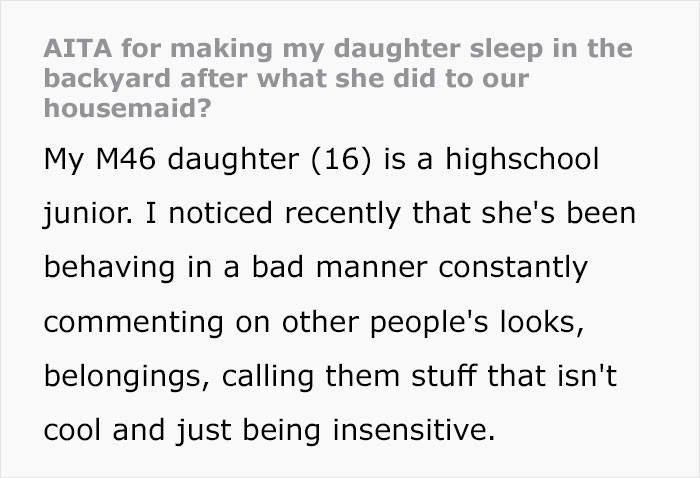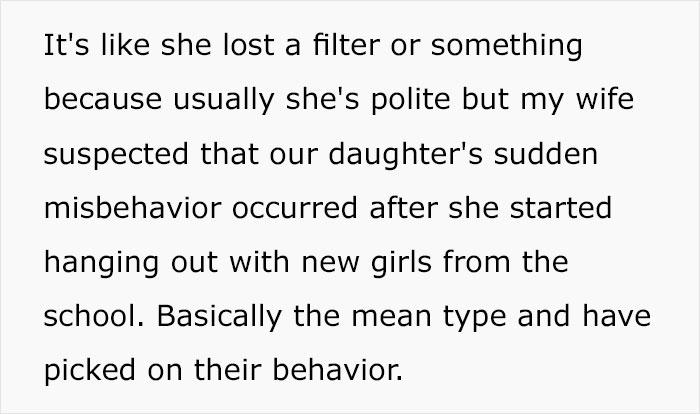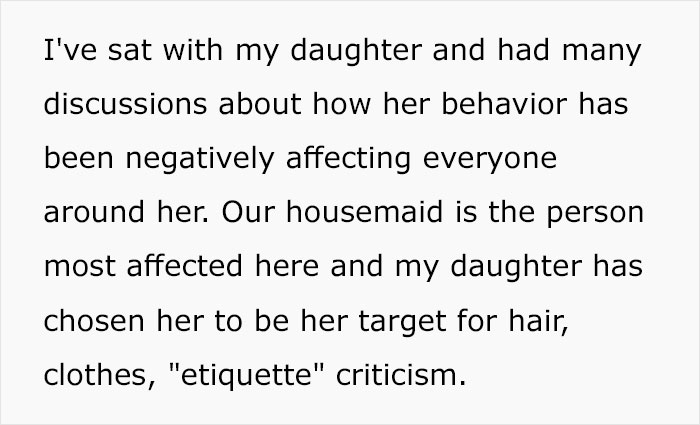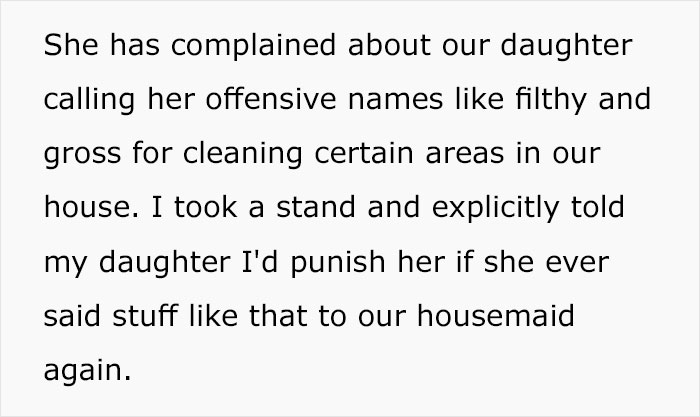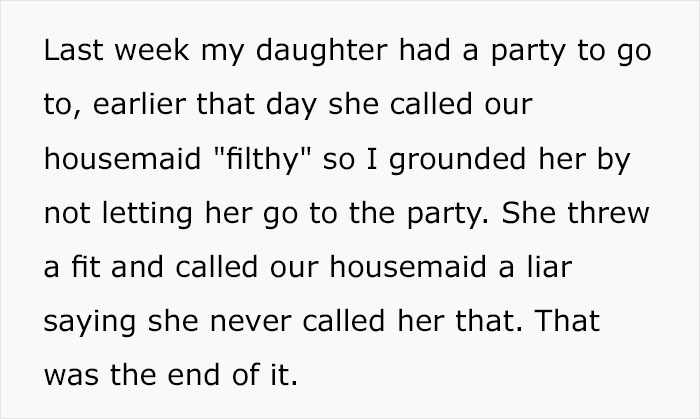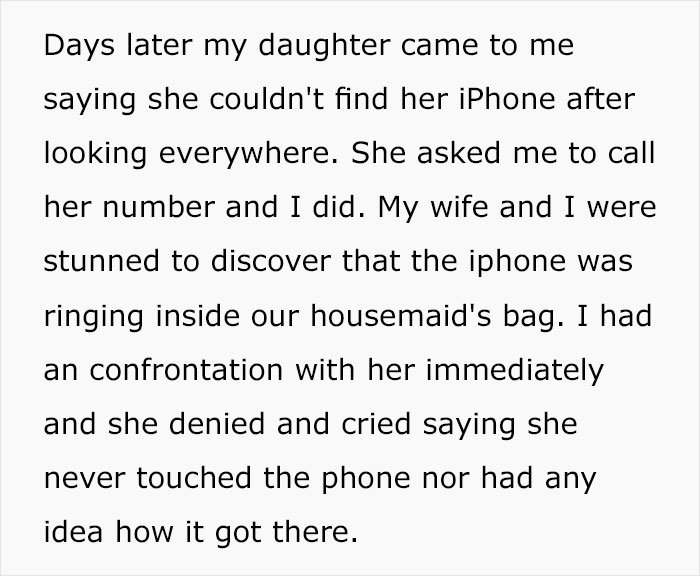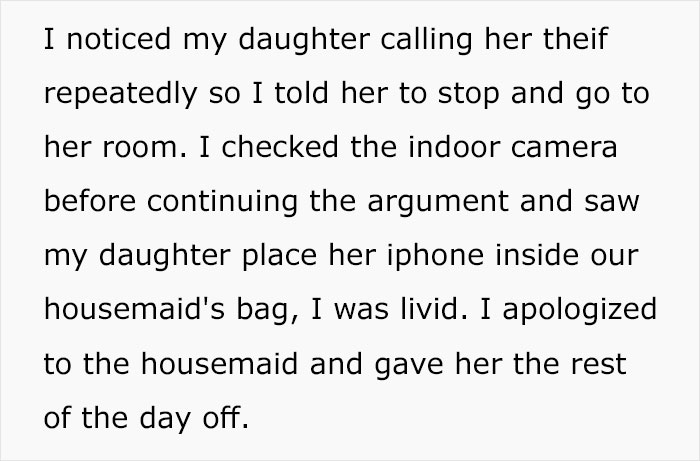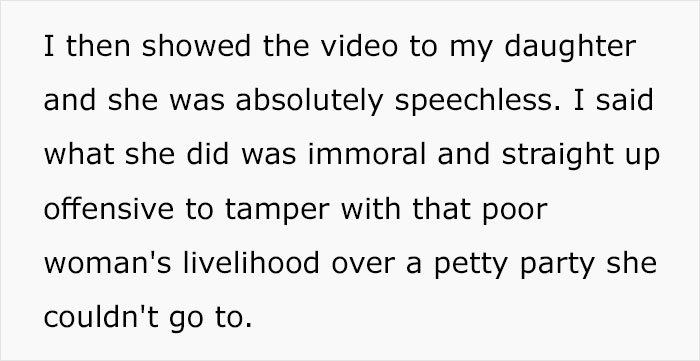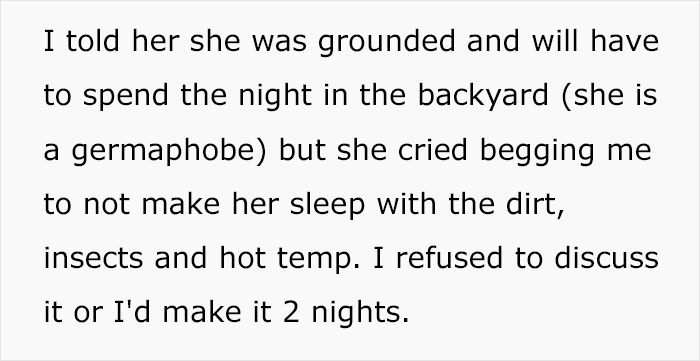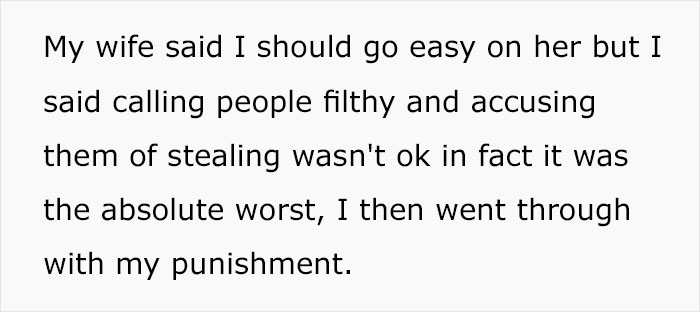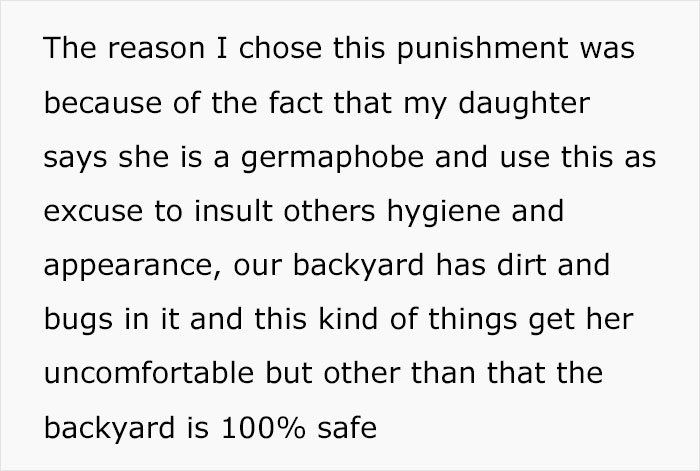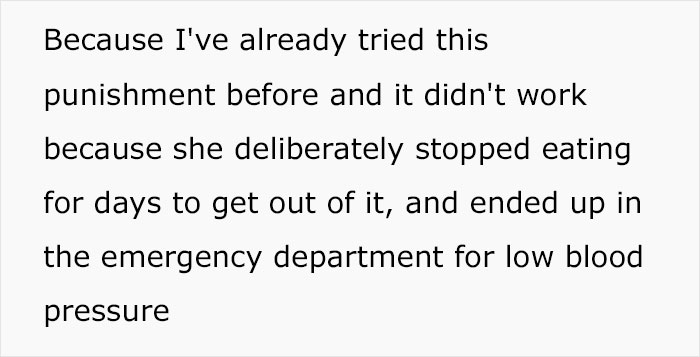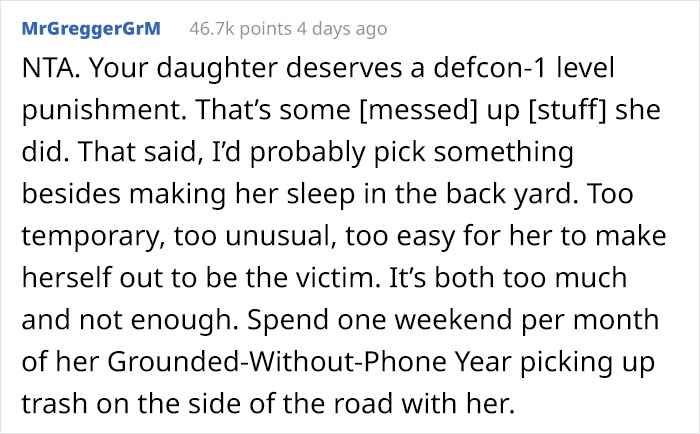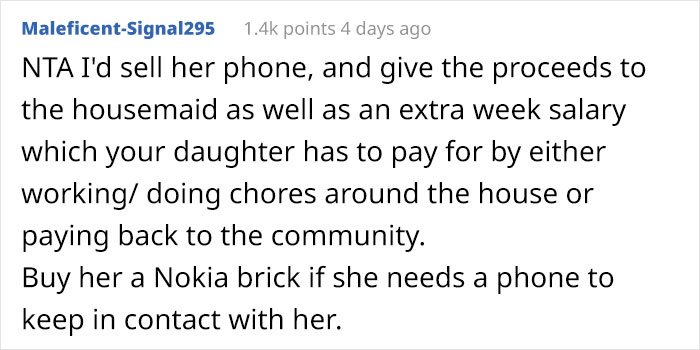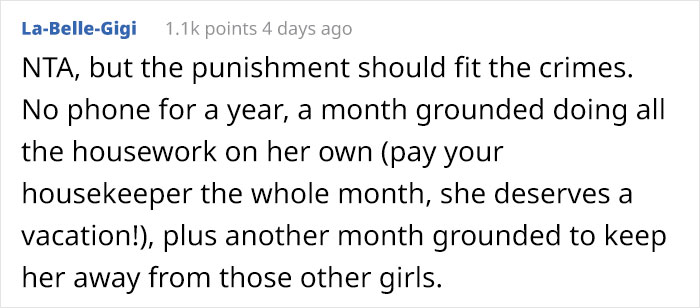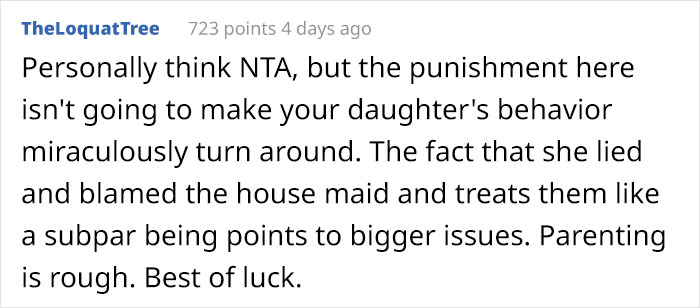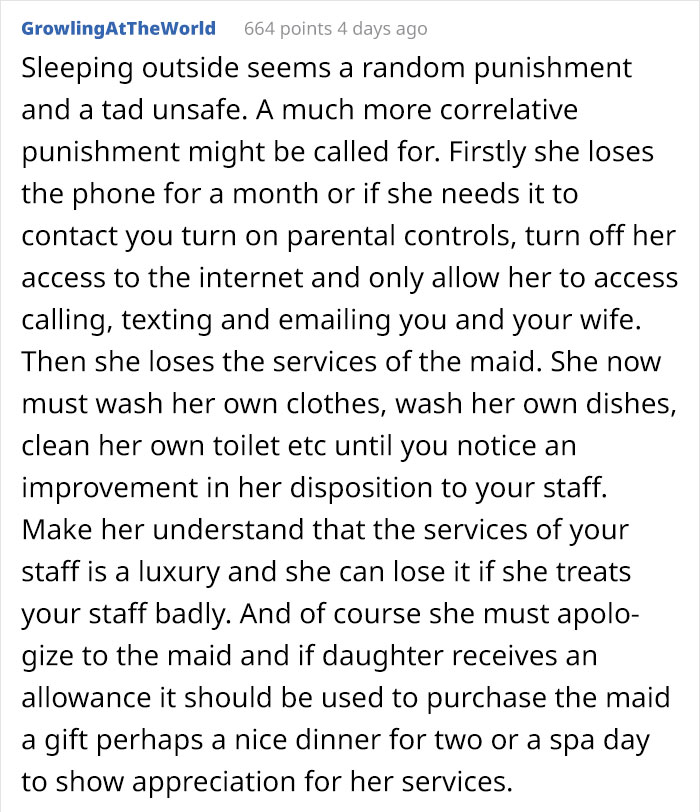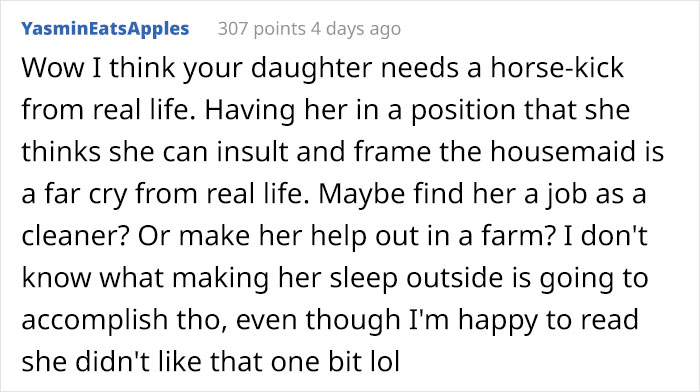There’s a Lithuanian proverb that roughly translates to “Liars have short legs.” Meaning, eventually they get caught. This teenager is learning it the hard way.
When the 16-year-old got in trouble with her parents for disrespecting the family’s maid, she developed a cunning scheme how to get the lady fired. The girl secretly placed her iPhone in the maid’s bag and put up a show to convince her parents that it was actually a theft. (A- for creativity but an F in common decency.)
However, the teen’s plan had a major flaw. One that ultimately brought her to justice: she forgot about the secret camera in the house. When the cat was out of the bag, her dad, Redditor u/HallNum032 disciplined her one more time, only this punishment was more severe. He really wanted the girl to get the message.
But after a while, the man started doubting himself and turned to the internet to ask if he overreacted. Here’s what he wrote.
Image credits: Pankaj Shah (not the actual photo)
Image credits: HallNum032
Who their kids are friends with is something many moms and dads are concerned about. Writer, director, broadcaster, and founder of the parenting blog Honest Mum, Vicki Broadbent, thinks that parents can intervene when their children are mixing with others they might deem unsuitable or dangerous, but they have to be smart about it. “The key is to build trust in your kids first and try to see the world and their relationships from their perspective so you can have a meaningful conversation,” Broadbent told Bored Panda. “Berating and becoming upset with them will lead to a stand-off and them switching off.”
Instead, the mom suggests sitting down and having an honest conversation with your kid.
“Read between the lines,” Broadbent added. “Remember that things might not be how they seem. Your child might feel pressured into this friendship at school or feel they can’t make other friends … so now is the time to problem-solve with them and consider potentially speaking to their teachers too.”
She pointed out that teachers can separate friendships or split up the class to help children build new connections, as well as speaking directly to the child in question who might be struggling to offer their support and ideas. “Listening, really listening to your child’s perspective and respecting their feelings are paramount during this talk and subsequent ones.” Vicki reminded us that it’s important to also question whether you’re being too judgemental.
Equally, she said, ask yourself if your own child is the one leading or contributing to bad behavior and if so, how can you help them.
Talya Stone, a former editor-in-chief turned parenting blogger and the woman behind Motherhood: The Real Deal and 40 Now What, agrees that it’s a very tricky spot. “You can’t choose your teenager’s friends [and] you have to be careful not to seem like you are working against your teenager by criticizing their friends [either],” Stone explained to us.
You could, for example, highlight that you don’t like their behavior. But you have to be strategic about this approach too. “Setting clear boundaries on where they can go, when they can go, and what they can do and monitoring those boundaries to ensure they are being adhered to … [could be one rational way] of dealing with any unwanted behaviors and offering up consequences when need be.”
Also, it might be a good idea to talk to them about unwanted behaviors at a calm time. “Maybe you’re reading a story in the weekend papers about anti-social behavior you can form a discussion around. Or maybe it’s a low-key chat while you’re giving them a lift somewhere. Be sure to be non-confrontational. It’s a sure-fire way to end up in conflict.”
Whether or not you should also be your kid’s friend is a whole other discussion. And equally as challenging. The answer, for the most part, depends on your own parenting philosophy.
Vicki Broadbent, the author of Mumboss (UK) and The Working Mom (the US and Canada), for instance, said “it’s critical in my opinion to be your child’s friend as well as their parent. Friendship is based on shared values, boundaries, respect, and love, the same as parenting. When you have built a foundation of trust and love with your children, they will be more open and candid with you about their lives and vitally, they will know they can reach out to you with problems big and small, you just have to keep the conversation going. Equally, when you mess up as all humans do, apologizing to your child will enable them to model their behavior on you. To follow your lead. They need to know that problems can be resolved and mistakes are there as lessons so they can keep doing better.”
Of course, all of this doesn’t mean that your family will be able to avoid similar situations. It does, however, mean that navigating them will be much easier.
People think the dad was reasonable
Source link : https://www.boredpanda.com/father-forces-daughter-sleep-backyard-outside


